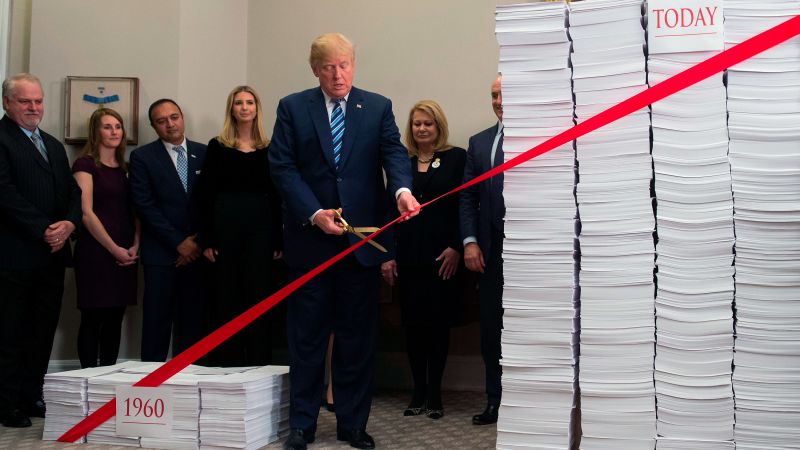Analyzing The China Market: Why BMW And Porsche Face Headwinds

Table of Contents
Intensifying Competition from Domestic Brands
The rise of powerful Chinese automakers is arguably the biggest headwind facing established luxury brands like BMW and Porsche in China. This competition manifests in two key areas: the explosive growth of electric vehicle (EV) manufacturers and the overall improvement in quality and features offered by domestic brands.
Rise of Chinese EV Manufacturers
The rapid growth of domestic electric vehicle (EV) manufacturers like NIO, Xpeng, and BYD is posing a serious threat to established players. These brands are not just competing on price; they are leveraging several key advantages:
- Superior understanding of the local market and consumer needs: Chinese EV makers possess intimate knowledge of local preferences, seamlessly integrating features and functionalities that resonate deeply with Chinese consumers.
- Aggressive pricing strategies and government subsidies: Government support, combined with aggressive pricing strategies, makes EVs from domestic manufacturers significantly more affordable than their foreign counterparts.
- Rapid innovation and technological advancements in EV technology: Chinese EV manufacturers are rapidly innovating and pushing the boundaries of EV technology, often surpassing established brands in certain areas.
- Strong nationalistic sentiment supporting domestic brands: A surge in national pride is fueling demand for homegrown brands, further bolstering the position of Chinese EV manufacturers.
Improved Quality and Features of Domestic Brands
Chinese automakers are no longer solely focused on producing budget-friendly vehicles. Significant investments in research and development have led to a noticeable improvement in vehicle quality, safety, and overall features, directly challenging the dominance of established luxury brands:
- Investments in R&D leading to improved vehicle quality and safety: The investment in R&D has resulted in vehicles meeting, and in some cases exceeding, international safety and quality standards.
- Integration of advanced technology, including autonomous driving features: Chinese brands are integrating advanced driver-assistance systems (ADAS) and other technological features at a rapid pace.
- Enhanced brand image and marketing campaigns targeting affluent consumers: Sophisticated marketing campaigns are successfully positioning domestic brands as desirable choices for affluent Chinese consumers.
Economic Slowdown and Shifting Consumer Preferences
Beyond the intensified competition, broader economic trends and evolving consumer preferences are creating further headwinds for BMW and Porsche in the China market.
Impact of Economic Uncertainty
The Chinese economy has experienced slower-than-expected growth in recent years, impacting the sales of luxury goods, including high-end vehicles:
- Reduced consumer confidence and spending power: Economic uncertainty has led to reduced consumer confidence, impacting spending on discretionary items like luxury cars.
- Increased uncertainty about future economic prospects: Concerns about future economic stability are making consumers more cautious in their spending habits.
- Impact on luxury car sales as consumers prioritize essential spending: In times of economic uncertainty, consumers tend to prioritize essential spending, leaving luxury purchases lower on the priority list.
Evolving Consumer Tastes
Chinese consumers are demonstrating a high level of discernment, demanding personalized experiences and innovative technologies:
- Focus on technological advancements like advanced driver-assistance systems (ADAS): Cutting-edge technology is a key factor influencing purchase decisions among Chinese consumers.
- Preference for electric and hybrid vehicles, impacting traditional ICE sales: The increasing demand for eco-friendly vehicles poses a challenge for brands heavily reliant on internal combustion engine (ICE) vehicles.
- Growing demand for customized features and personalization options: Tailored experiences and customization options are highly valued by increasingly discerning Chinese consumers.
External Challenges
Beyond internal market dynamics, external factors also present significant challenges for luxury automakers operating in China.
Supply Chain Disruptions and Import Tariffs
Global supply chain disruptions and fluctuating import tariffs are impacting profitability and increasing manufacturing costs:
- Increased costs associated with importing parts and materials: Disruptions to global supply chains are driving up the cost of imported components.
- Delays in production and delivery due to supply chain bottlenecks: Supply chain bottlenecks are causing delays in production and delivery, impacting customer satisfaction.
- Uncertainty around future tariffs and trade policies: The unpredictable nature of trade policies adds further uncertainty to the business environment.
Geopolitical Risks
Geopolitical tensions and trade disputes can further destabilize the market and create uncertainty for foreign businesses:
- Potential for increased trade barriers and restrictions: Escalating geopolitical tensions could lead to increased trade barriers and restrictions.
- Negative impact on consumer confidence and investment: Geopolitical instability negatively impacts consumer confidence and investment in the automotive sector.
- Risks associated with operating in a politically complex environment: Navigating the complexities of the Chinese political landscape presents unique challenges for foreign businesses.
Conclusion
The China market, once a surefire success for luxury carmakers like BMW and Porsche, is now presenting significant headwinds. Intense competition from domestic brands, an evolving economic landscape, and shifting consumer preferences are all contributing factors. To succeed, these brands must adapt to the changing dynamics of the Chinese market, investing heavily in electrification, personalization, and deepening their understanding of local consumer needs. Ignoring these challenges will only exacerbate the difficulties facing BMW and Porsche in this crucial market. Understanding and effectively navigating the complexities of the China market is paramount for long-term success in the automotive industry. A thorough analysis of these challenges and the adaptation of strategic responses is vital for any luxury car brand aiming for sustained growth in this dynamic market.

Featured Posts
-
 Breast Cancer Diagnosis After Missed Mammogram Learning From Tina Knowles Experience
Apr 23, 2025
Breast Cancer Diagnosis After Missed Mammogram Learning From Tina Knowles Experience
Apr 23, 2025 -
 Are Leaks Sabotaging Trumps Agenda Hegseth Weighs In
Apr 23, 2025
Are Leaks Sabotaging Trumps Agenda Hegseth Weighs In
Apr 23, 2025 -
 Milwaukee Sets Record With Nine Stolen Bases In Four Innings
Apr 23, 2025
Milwaukee Sets Record With Nine Stolen Bases In Four Innings
Apr 23, 2025 -
 Retail Space Realignment The Fallout From Hudsons Bays Store Closures
Apr 23, 2025
Retail Space Realignment The Fallout From Hudsons Bays Store Closures
Apr 23, 2025 -
 Iftar Ve Sahur Saatleri 2024 Ramazan Imsakiyesi Istanbul Ankara Izmir
Apr 23, 2025
Iftar Ve Sahur Saatleri 2024 Ramazan Imsakiyesi Istanbul Ankara Izmir
Apr 23, 2025
